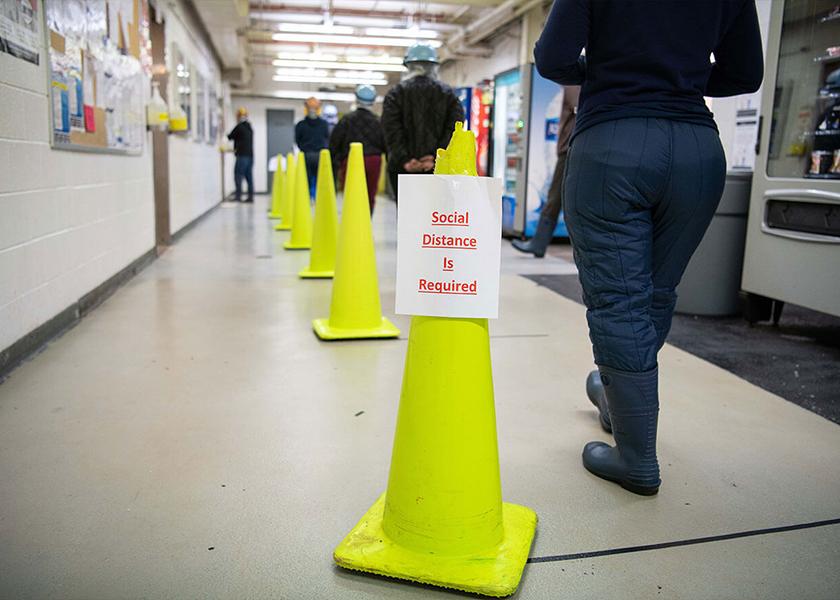USDA Announces $700 Million in Grants to Help Ag Workers Impacted by COVID-19

USDA Secretary of Agriculture Tom Vilsack announced on Monday that $700 million in competitive grant funding will be available through the new Farm and Food Workers Relief (FFWR) grant program to help farmworkers and meatpacking workers with pandemic-related health and safety costs.
Additionally, to recognize the essential role and costs borne by front-line grocery workers, $20 million of this amount has been set aside for at least one pilot program to support grocery workers and test options for reaching them in the future, USDA said in a release. The new program is funded by the Consolidated Appropriations Act of 2021 and is part of USDA’s Build Back Better efforts to respond and recover from the pandemic.
“As we celebrate the social and economic achievements of our nation’s workers on Labor Day, we recognize that our farmworkers, meat packing workers, and grocery workers overcame unprecedented challenges and took on significant personal risk to ensure Americans could feed and sustain their families throughout the pandemic,” Vilsack said in a release. “They deserve recognition for their resilience and financial support for their efforts to meet personal and family needs while continuing to provide essential services.”
Vilsack said this grant program is another component of this Administration’s efforts to ensure assistance to alleviate the effects of the pandemic is distributed to those who need it most. It will provide relief to farmworkers, meatpacking workers and front-line grocery workers for expenses incurred due to the COVID-19 pandemic.
The financial support is intended to defray costs for reasonable and necessary personal, family or living expenses related to the COVID-19 pandemic, such as costs for personal protective equipment (PPE), dependent care and expenses associated with quarantines and testing related to the COVID-19 pandemic.
The Request for Application (RFA) will be announced in early Fall and will be open for 60 days. Additional information and technical assistance for applying to these grants and program updates will be provided by USDA when the application period opens, USDA notes in a release.
Funds will be awarded through grants to state agencies, Tribal entities and non-profit organizations serving farmworkers and meatpacking workers ranging from $5,000,000 to $50,000,000. USDA is setting aside $20 million for at least one pilot to provide targeted support to front-line grocery workers.
Eligible entities must demonstrate the capacity to reimburse farmworkers and meatpacking workers for up to $600 for expenses incurred due to the novel coronavirus 2019 (COVID-19) pandemic. The USDA encourages grant applications that demonstrate trusted communications networks with farmworkers, meatpacking workers and/or front-line grocery workers, as well as strong financial controls, USDA said. Applicants should show connectedness to hard-to-reach worker populations either directly or in partnerships with other local organizations. Applicants should be able to describe how they will partner with smaller organizations to facilitate financial relief to such populations.
The Agricultural Marketing Service (AMS) will offer technical assistance through one or more partners and webinars for applicants to help them understand the RFA, once it is published. For more information, visit www.ams.usda.gov/services/grants/ffwr. Applications must be submitted electronically through www.grants.gov.
USDA said it will soon be announcing a separate $700 million suite of pandemic safety and response grants for producers, processors, farmers markets, distributors and seafood processors and vessels impacted by COVID-19.
More from Farm Journal's PORK:
ASF Vaccines: Is the Waiting Game Almost Over?
Tyson Foods, Unions Strike Deal Over COVID-19 Vaccine Mandate







